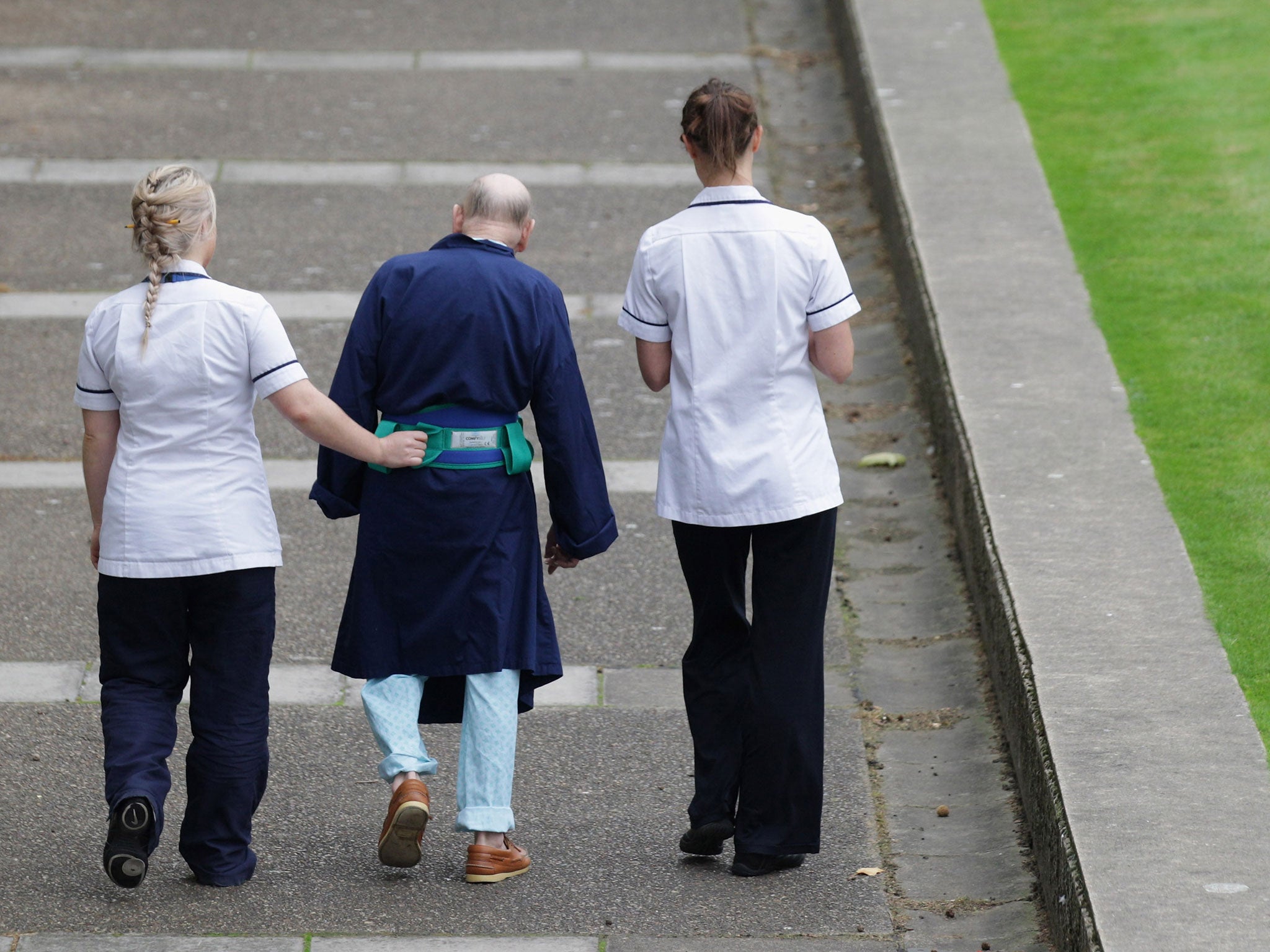Dementia timebomb set to cost £3bn by 2030 as people leave work to care for relatives

Your support helps us to tell the story
From reproductive rights to climate change to Big Tech, The Independent is on the ground when the story is developing. Whether it's investigating the financials of Elon Musk's pro-Trump PAC or producing our latest documentary, 'The A Word', which shines a light on the American women fighting for reproductive rights, we know how important it is to parse out the facts from the messaging.
At such a critical moment in US history, we need reporters on the ground. Your donation allows us to keep sending journalists to speak to both sides of the story.
The Independent is trusted by Americans across the entire political spectrum. And unlike many other quality news outlets, we choose not to lock Americans out of our reporting and analysis with paywalls. We believe quality journalism should be available to everyone, paid for by those who can afford it.
Your support makes all the difference.Dementia will cost English businesses £3bn by 2030, driving thousands out of work to care for their elderly relatives, and cutting the size of the over 65s workforce, economic analysts have warned.
As well as the health and social costs of the "dementia timebomb" there is a growing concern in Government about the economic cost which could accompany a predicted explosion in the number of people living with the disease over the next few decades.
Up to 1.1m people will have dementia in England by 2030 – almost double the current figure. Already, the disease costs English business around £1.6bn a year. A new analysis, compiled by experts at the Centre for Economic and Business Research (CEBR) for Public Health England and the Alzheimer’s Society, estimates that this figure will double by 2030, by which time 83,000 people would otherwise be working will have left the workforce to care for someone with dementia.
Already, more than half a million people in England act as dementia carers. Half of them are employed and it is estimated that 66,000 people have already cut their working hours to make time for caring, while 50,000 have left work altogether.
Dementia will also afflict the workforce directly, the CEBR said. As the state pension age rises and more and more people stay in work for longer, the number of workers affected by dementia is expected to rise to 57,000 by 2030.
Jeremy Hughes, chief executive of the Alzheimer’s Society, said that businesses would have to adapt to the changing shape of society and the workforce.
“Thousands of people affected by dementia are forced to give up work and are denied a lifeline because of the failure of organisations to change the way they do business,” he said. “From the shop floor to boardrooms, dementia affects every workplace. As the condition touches the lives of more people, businesses must gear up to support all people with dementia; staff and customers alike.”
The CEBR report also predicts that businesses will have to cater to an increasing number of customers with dementia, estimating that the so-called "dementia pound" – the spending power of families affected by dementia – would double to £22.7bn in the next 15 years.
More than 20 major businesses including Lloyds Pharmacy, M&S, Barclays and BT have pledged to make their services more accessible for people with dementia and to support staff either living with the disease or caring for someone who does.
Jeremy Hunt, the health secretary, has pledged that UK will lead the world in research towards a dementia cure, and in terms of our societal response to the disease, said that the CEBR report should encourage other businesses to change the way they worked.
“Dementia is one of the biggest challenges we face, and our ambition is to become one of the best countries in the world for dementia care,” he said. “We can only do this with the help of every part of society.”
Join our commenting forum
Join thought-provoking conversations, follow other Independent readers and see their replies
Comments